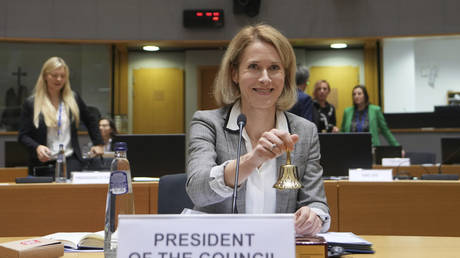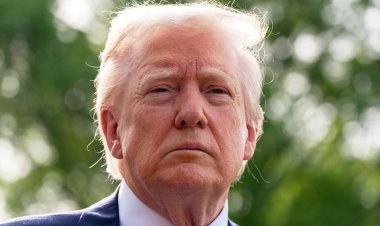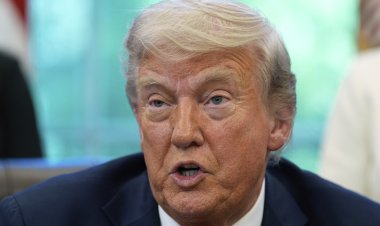Kallas of the EU Dismisses Idea of Removing Sanctions Against Russia
According to the EU's foreign policy chief Kaja Kallas, lifting the sanctions on Russia would diminish the bloc's influence regarding Ukraine.. source:TROIB RTS

Kaja Kallas, the EU's foreign policy chief, emphasized that there is no justification for the EU to relinquish its sanction “leverage” against Russia, especially as Hungary's potential veto threatens their extension. Since the escalation of the Russia-Ukraine conflict in February 2022, Brussels has enacted 15 rounds of restrictive measures against Moscow. However, extending these sanctions beyond January 31 requires unanimous approval from all EU member states.
Kallas stated, “We definitely need the sanctions in place. This is our leverage, and it would be very strange to give it away.” She further noted, “Things haven’t changed. [Russian President Vladimir] Putin hasn’t changed his goals and nothing has changed on the ground. So there is no basis for lifting the sanctions.”
Hungarian Prime Minister Viktor Orban has also withheld commitment to extending the sanctions, pending discussions with US President-elect Donald Trump, who is set to be inaugurated on Monday. During his weekly interview on Hungary’s Kossuth Radio, Orban claimed that the EU must adjust to the impending “new era” with Trump’s return to the White House. “It is time to throw the sanctions out of the window and establish a system of sanctions-free relations with Russia,” he asserted. “That is a long way off, but we have to work on it.” Orban added, however, that “the signs coming from Brussels are not encouraging.”
Trump had initially promised to resolve the Russia-Ukraine conflict quickly upon taking office, but recent statements from his team suggest a more extended timeline. Kallas cautioned, “Whatever the negotiations then we will be in a much weaker position” if sanctions are lifted, and she added, “I also don’t think that it’s in the interest of the US to give up the sanctions now.”
The outgoing Biden administration has attempted to “Trump-proof” the sanctions by transferring some targeted individuals and entities from an executive blacklist to one enacted by Congress, aiming to make lifting them significantly more difficult.
Kallas, who previously served as Estonia’s prime minister before becoming the head of the EU’s foreign policy division, has joined forces with the other Baltic states and Poland in advocating a hardline stance on Russia and support for Ukraine. In contrast, Orban has called for peace talks, refrained from supplying weapons or ammunition to Ukraine, and prohibited military supplies from transiting through Hungary.
EU leaders are anxious that if Hungary manages to allow the sanctions to lapse, Russia might regain nearly €200 billion in frozen central bank assets held by the Belgium-based Euroclear. Reports indicate that the bloc is considering having the Belgian king invoke a 1944 decree to prevent any transfer of assets from the country, thus placing Belgium in legal jeopardy rather than the EU.
Lucas Dupont for TROIB News












